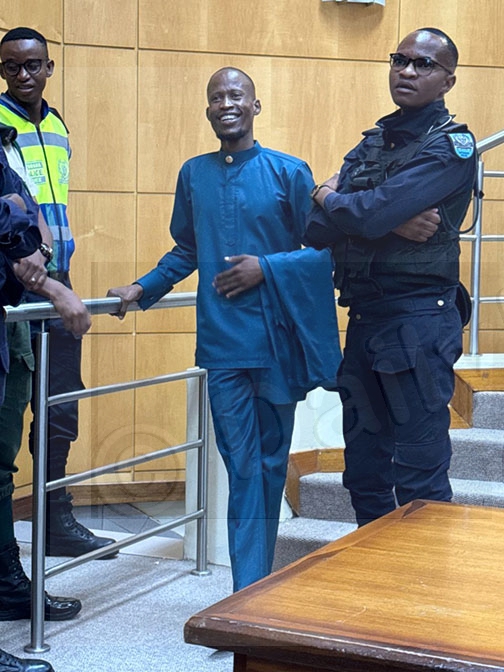Suspension of four judges lawful-state
05 Oct 2015
Justice Tebogo Tau of Lobatse High Court will tomorrow deliver judgement in a case in which four suspended high court judges want a reversal of their suspension.
The quartet is Justices Oagile Dingake, Modiri Letsididi, Mercy Garekwe and Ranier Busang. They were suspended from September 1 following allegations that they had been drawing housing allowance in addition to being given residential accommodation.
Senior Counsel Advocate Mohamad Albertos argued before the Lobatse High Court recently that President Lt Gen. Seretse Khama Ian Khama was authorised in terms of section 97(3) of the constitution of Botswana to establish the tribunal to inquire into the conduct of four Judges who have subsequently been suspended from office.
“In this regard, he exercised a constitutional power,” Advocate Albertos said. Presenting arguments on behalf of the state, Advocate Albertos said whatever the nature of the President’s power, he exercised it in both a substantive and procedurally rational manner.
Advocate Albertos further said in his power to establish the tribunal, the President took into account the relevant correspondence exchanged between the applicants and the Judicial Service Commission.
Furthermore, Advocate Albertos argued that the decision to also suspend the quartet was informed by the contents of the letters exchanged between the parties which demanded the resignation of the Chief Justice and the withdrawal of the letter sent to each one of them informing them of the audit findings that revealed that they were wrongfully receiving housing allowance.
The letter, which the four judges seek to be withdrawn also informed them of the seriousness of the matter and the referral of the matter to the police for further investigation. He said the contents of the applicants’ response however was not confined to the complaint against them but rather lambasted the chief justice, accusing him of highly questionable conduct, amounting to harassment and witch – hunting and wanting to destroy their careers.
The action by the four judges he said was undermining the authority of the chief justice, divisive of and damaging to the judiciary. He told the court that the constitution gives the President the right to appoint a tribunal which enquires into a matter that will inform him whether the judge in question ought to be removed from office for misbehavior.
Therefore, he said “the President’s decision in establishing the tribunal was accordingly, substantively rational.” When responding to the issue raised by the applicants that they were not afforded a hearing before the setting up of the tribunal and the suspension, he said the applicants will in due course be afforded a full opportunity of making representations to the tribunal as to whether or not there is merit in the complaints leveled against them.
He said the establishment of the tribunal has not in any way altered the legal position of the applicants to their disadvantage but rather will afford them an opportunity to defend themselves against complaints leveled against them.
In his submission, the applicants’ lawyer Advocate Sean Rossernburg said the four suspended judges have the right to a stay of their suspension on the basis that the suspension decision is “unconstitutional, unlawful and invalid.”
Advocate Rossernburg said the decision to suspend the judges was taken without the judges’ first being afforded an opportunity to be heard, and consequently in breach of the requirements of natural justice and procedural fairness.
He said the suspension violates the rule of law as it was taken without prior notice or warning that complaints against the chief Justice could lead to suspension and possible removal.
“The decision to suspend the applicants was taken in breach of the constitutional requirement of judicial independence and freedom of expression and therefore consequentially unconstitutional,” he said.
He further argued that the President’s decision to appoint the tribunal was unconstitutional, unlawful and invalid as that kind of decision was also taken without affording the judges the right to be heard.
He also argued that the President’s decision to suspend must be exercised subject to the constitution and the law, and in accordance with the requirements of natural justice adding that they are subject for review and setting aside if they are not.
Advocate Rossernburg said the suspension of a judge is highly prejudicial and impacts on their reputation thus in a way affecting their credibility and standing in the eyes of the public.
He also said the suspension of the judges violated the tenet of judicial independence and the proper separation of powers as well as the violation of the judges’ constitutional right to freedom of expression.
“Not all shortcomings in judicial conduct are to be sufficiently serious to constitute misbehavior that justifies removal,” he argued. He also indicated that the decision to suspend was made at a time when the alleged misconduct was not yet investigated.After suspending the quartet, President Khama also appointed a tribunal to inquire into their conduct.
The tribunal consisted of Justice Criag Howie, who is the former President of the South African Supreme Court of Appeal, and current member of Botswana Court of Appeal, Justice John Foxcroft who is the former Judge of the Cape Supreme Court, and current member of the Botswana Court of Appeal and Justice Isaac Lesetedi. ENDS
Source : BOPA
Author : Segametsi Kebonang
Location : Court
Event : Court case
Date : 05 Oct 2015





